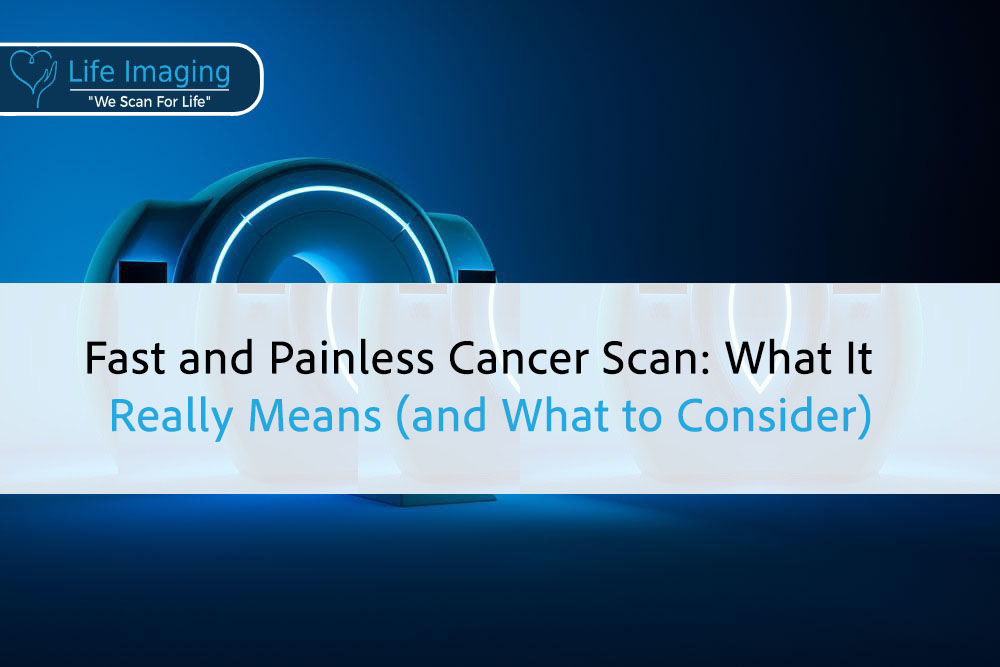
Fast and Painless Cancer Scan: What It Really Means (and What to Consider)
Fast and Painless Cancer Scan: What It Really Means (and

Detecting heart tumors early can make a significant difference in treatment and outcome. With advanced imaging technology like CT scans, identifying these tumors at an early stage becomes more accessible. At Life Imaging Fla, we use high-tech CT scans to check for heart tumors, giving patients critical information they need for effective treatment.
Heart tumors are rare, but their impact can be severe. Understanding what they are and how early detection can help is essential for managing your health. CT scans offer a non-invasive way to get detailed images of the heart, making it easier to spot abnormalities that might otherwise go unnoticed.
Getting a CT scan is straightforward. The process involves lying down on a table while a special X-ray machine takes multiple images of your heart. These images provide detailed information that helps doctors make informed decisions about your care. Knowing what to expect can ease any concerns you may have and help you prepare for your scan. Your health is important, and early detection can provide peace of mind and a better path for treatment.
Heart tumors are abnormal growths in the heart. They can be benign (non-cancerous) or malignant (cancerous). While heart tumors are rare, they can cause serious health issues. Tumors may develop in any part of the heart, including the lining, muscle, or valves.
– Primary Heart Tumors: These start in the heart itself. They are rare and often benign, like myxomas, which are the most common type.
– Secondary Heart Tumors: These originate from other parts of the body and spread to the heart. These are usually malignant and indicate advanced cancer.
Symptoms of heart tumors may include chest pain, shortness of breath, and irregular heartbeats. Sometimes, they might not cause any symptoms at all, making early detection crucial.
A CT (Computed Tomography) scan is a medical imaging technique that uses X-rays and computer technology to create detailed images of the inside of the body. Unlike regular X-rays, which provide flat images, CT scans produce cross-sectional views, offering a more complete picture of internal organs and structures.
Key Features of a CT Scan:
– Detailed Images: Provides a clear view of bones, blood vessels, and soft tissues.
– Non-Invasive: The procedure does not involve any surgery or insertion of instruments into the body.
– Quick and Efficient: Most CT scans take less than 30 minutes to complete.
CT scans are widely used for diagnosing various medical conditions, including heart tumors, due to their accuracy and reliability.
CT scans help detect heart tumors by creating detailed images of the heart. These images allow doctors to identify abnormalities that might be indicative of tumors.
Steps in Detecting Heart Tumors with CT Scans:
CT scans can differentiate between various types of tissues, making it easier to identify tumors. They can also show the size, shape, and exact location of the tumor, providing valuable information for further diagnosis and treatment planning.
Early detection of heart tumors presents numerous advantages, contributing significantly to effective treatment and management. Here are some benefits:
– Improved Treatment Options: Detecting a tumor early allows for a wider range of treatment choices. Smaller and localized tumors are easier to treat and may not require aggressive interventions.
– Better Prognosis: Early-stage tumors typically have a better prognosis. Treatment at this stage is often more successful, reducing the risk of complications.
– Prevention of Complications: By identifying tumors early, potential complications like heart failure, embolism, or arrhythmias can be avoided. Early intervention helps maintain heart function and overall health.
– Peace of Mind: Knowing your heart health status helps reduce anxiety and allows for better planning and management of your health.
Regular screenings and early detection can make a significant difference in treatment outcomes, emphasizing the importance of timely medical attention.
Proper preparation is vital to ensure the accuracy and comfort of your CT scan. Here’s what you need to do before your appointment:
– Medical History: Inform your doctor about your medical history, including any allergies, especially to contrast dye, iodine, or shellfish. This is crucial if a contrast-enhanced CT scan is planned.
– Fasting: You may be asked to fast for a few hours before the scan, especially if contrast dye will be used. This helps prevent nausea and ensures clear images.
– Remove Metal Objects: Metal items can interfere with the imaging process. Remove jewelry, glasses, and any other metal objects before the procedure.
– Wear Comfortable Clothing: Opt for loose, comfortable clothing. You may be asked to change into a hospital gown for the scan.
– Medical Devices: Inform the technician if you have any medical devices like pacemakers, as they may affect how the scan is performed.
Being well-prepared can help the scan go smoothly and ensure precise, reliable results.
Knowing what to expect can make your CT scan experience smooth and stress-free. Here’s a step-by-step guide:
After the scan, you can typically resume normal activities. The images will be reviewed by a radiologist, and your doctor will discuss the results with you at a follow-up appointment.
Once your CT scan is complete, a radiologist will examine the images to identify any abnormalities or signs of a heart tumor. Here’s how the results process generally works:
Understanding the results can be challenging, but your doctor will break down the information and answer any questions you have. It’s important to fully grasp what the findings mean for your health and what the recommended course of action will be.
If your CT scan reveals a heart tumor, don’t panic. Here’s a general roadmap for what happens next:
Navigating the next steps requires clear communication with your healthcare team. Understanding the process can help you make informed decisions and take control of your health journey.
Discovering a heart tumor can be alarming, but various treatment options are available:
– Surgery: This is the most common and often most effective treatment for heart tumors. The surgeon removes the tumor through open-heart surgery, aiming to eliminate it completely.
– Radiation Therapy: This may be used if surgery isn’t an option. Radiation targets and shrinks the tumor using high-energy rays.
– Chemotherapy: In some cases, drugs are used to kill cancer cells or stop them from growing.
– Monitoring: For benign tumors that aren’t causing symptoms, regular monitoring may be all that’s needed. Your doctor will keep track of the tumor’s size and behavior.
Each treatment plan is tailored to the patient’s specific situation and the type of tumor.
CT scans are powerful, but they work well with other tools:
– Echocardiograms: This test uses ultrasound to visualize the heart in real time, complementing the detailed images from a CT scan.
– MRI Scans: MRI can provide detailed images of soft tissues and is useful for seeing the heart’s structure.
– PET Scans: PET scans can show metabolic activity and help differentiate between benign and malignant tumors.
– Biopsies: Sometimes a tissue sample is needed to definitively diagnose the type of tumor.
Using a combination of these tools gives a comprehensive view of your heart health and aids in accurate diagnosis.
Here are some common questions about heart tumor detection:
Yes, CT scans are generally safe. They use a low dose of radiation to capture detailed images.
The scan itself typically takes about 10-20 minutes. However, you may spend up to an hour at the facility for preparation and follow-up.
Your doctor will discuss treatment options or further testing based on the findings.
Yes, you might need to avoid eating for a few hours before the scan. Follow your doctor’s specific instructions.
These answers help clarify the process and what to expect during heart tumor detection.
Getting a CT scan at Life Imaging Fla is simple:
– Contact Us: Call or visit our website to schedule your appointment at a convenient time.
– Follow Preparation Instructions: We will provide you with detailed instructions on how to prepare, including any dietary restrictions.
– Arrive on Time: Plan to arrive a little early to complete any necessary paperwork and get settled before the scan.
– Review Results with Your Doctor: After the scan, schedule a follow-up appointment to discuss the results and any next steps.
– Coordination of Care: We can help coordinate with other healthcare providers for any additional tests or treatments.
Smooth scheduling helps ensure you get timely and comprehensive care.
Detecting heart tumors early with CT scans can significantly impact treatment outcomes. Understanding the available treatment options, combining CT scans with other diagnostic tools, and having clear answers to common questions help you navigate the process. Scheduling your CT scan at Life Imaging Fla ensures you receive thorough and professional care, providing peace of mind and a path to better health.
Take a proactive step for your health today. Schedule your CT scan with Life Imaging Fla and benefit from our advanced technology and expert care. Your well-being and peace of mind are our top priorities.

Fast and Painless Cancer Scan: What It Really Means (and
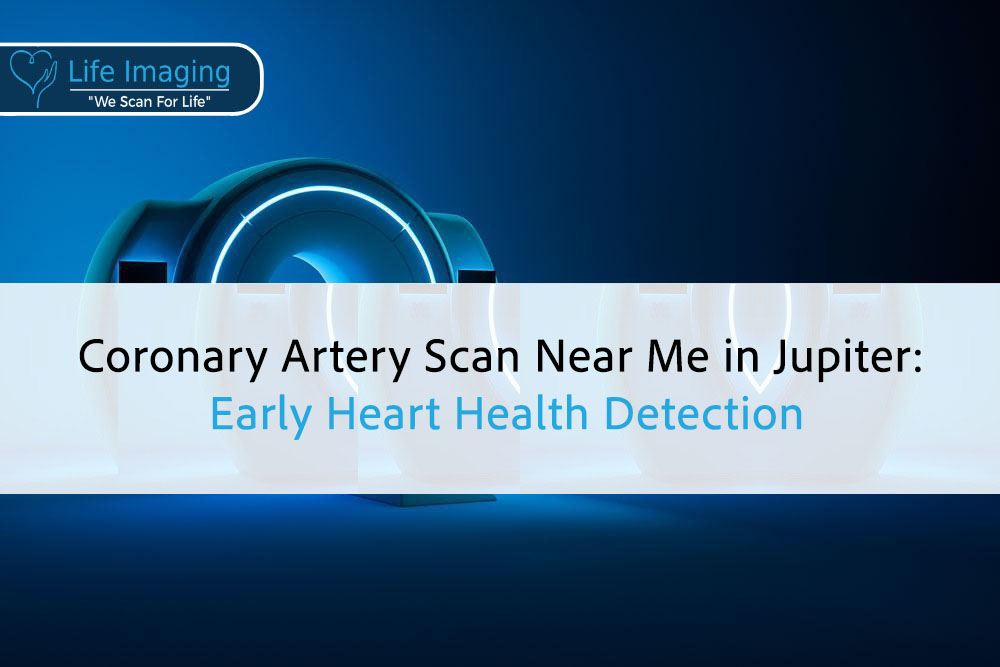
Introduction Your heart works hard every second of the day,
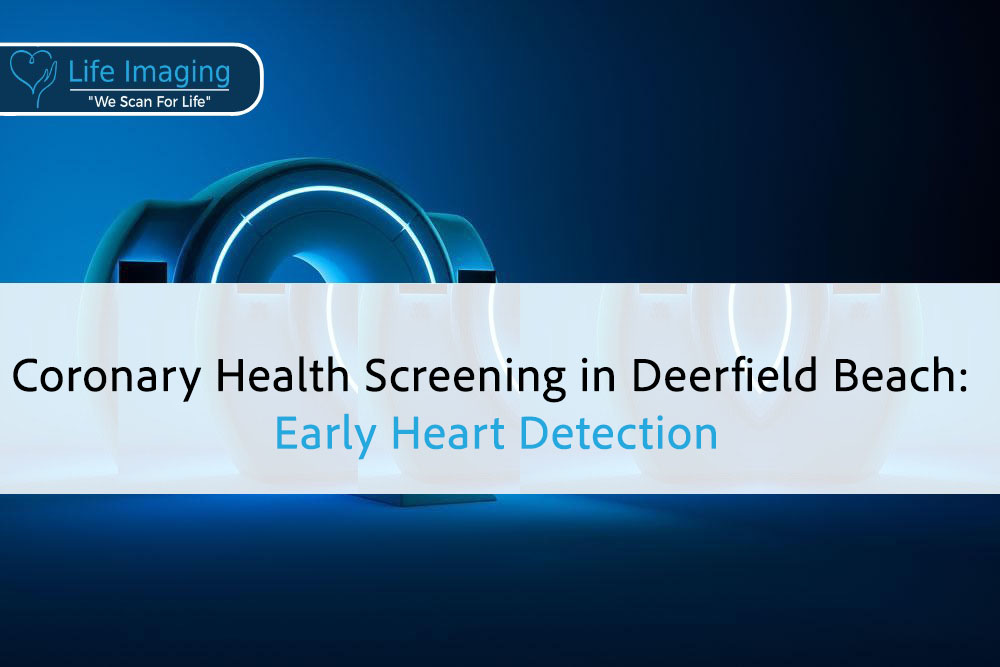
Introduction Your heart works around the clock, but changes inside
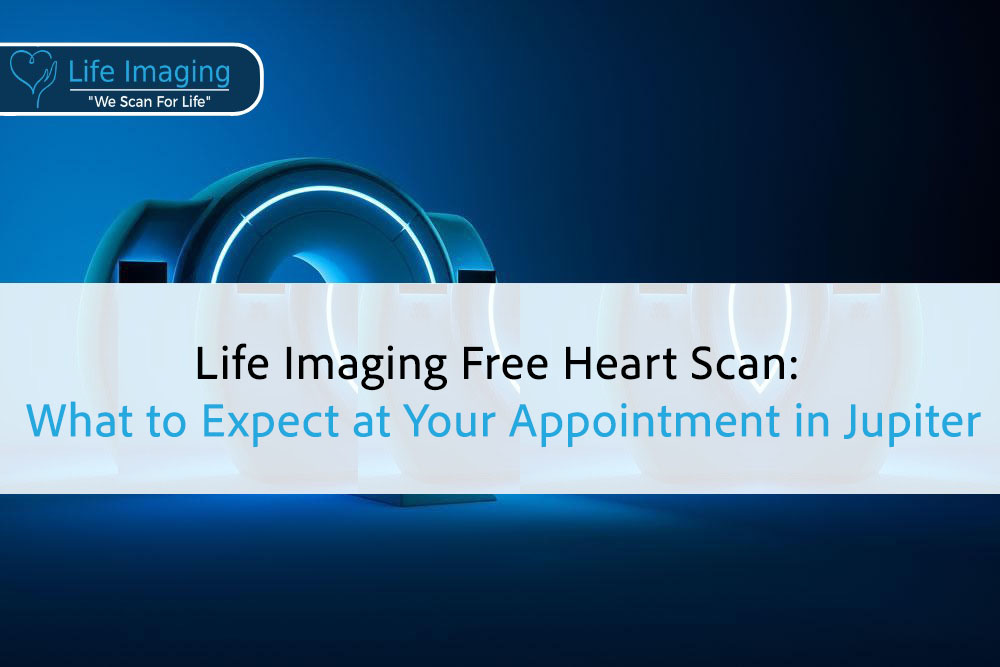
Introduction Your heart works nonstop, often without a single complaint.
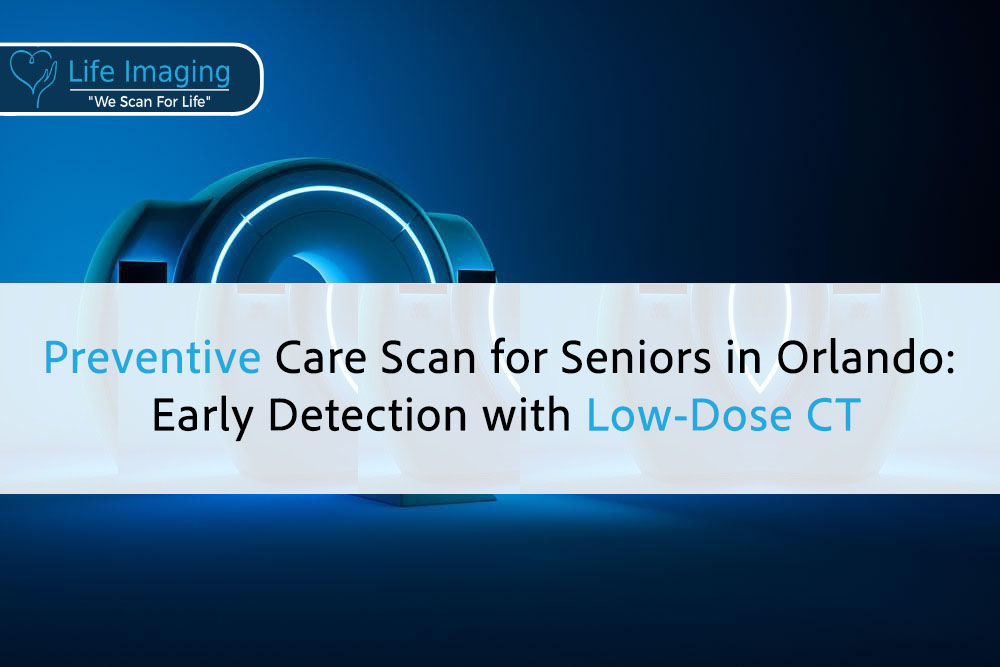
Introduction The best part of getting older is having time
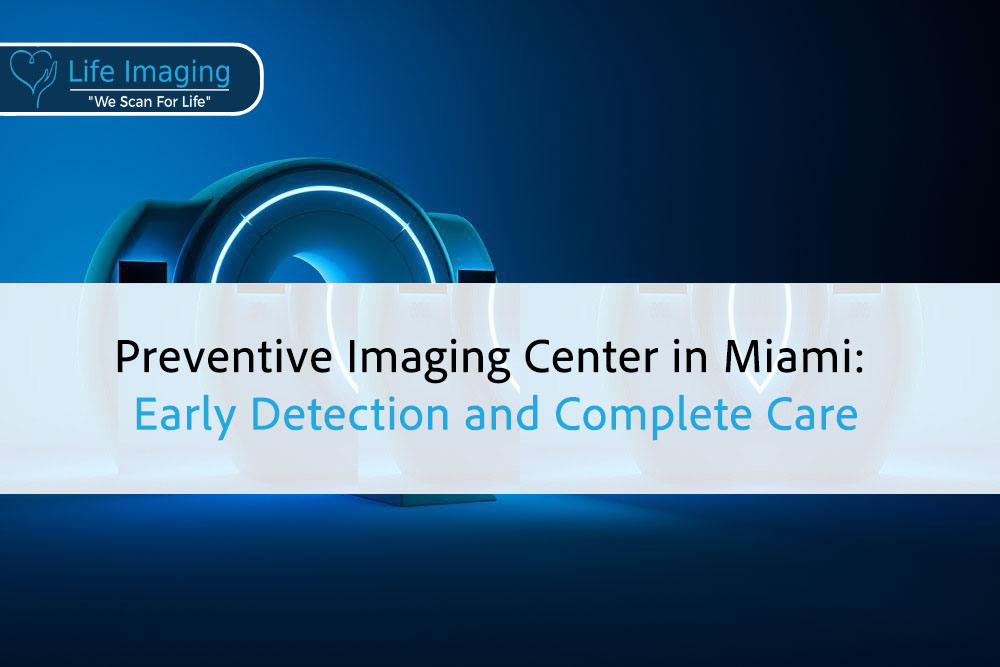
Introduction Good health isn’t just about treating problems, it’s about

* Get your free heart scan by confirming a few minimum requirements.
Our team will verify that you qualify before your scan is booked.
Copyright © 2025 Life Imaging – All Rights Reserved